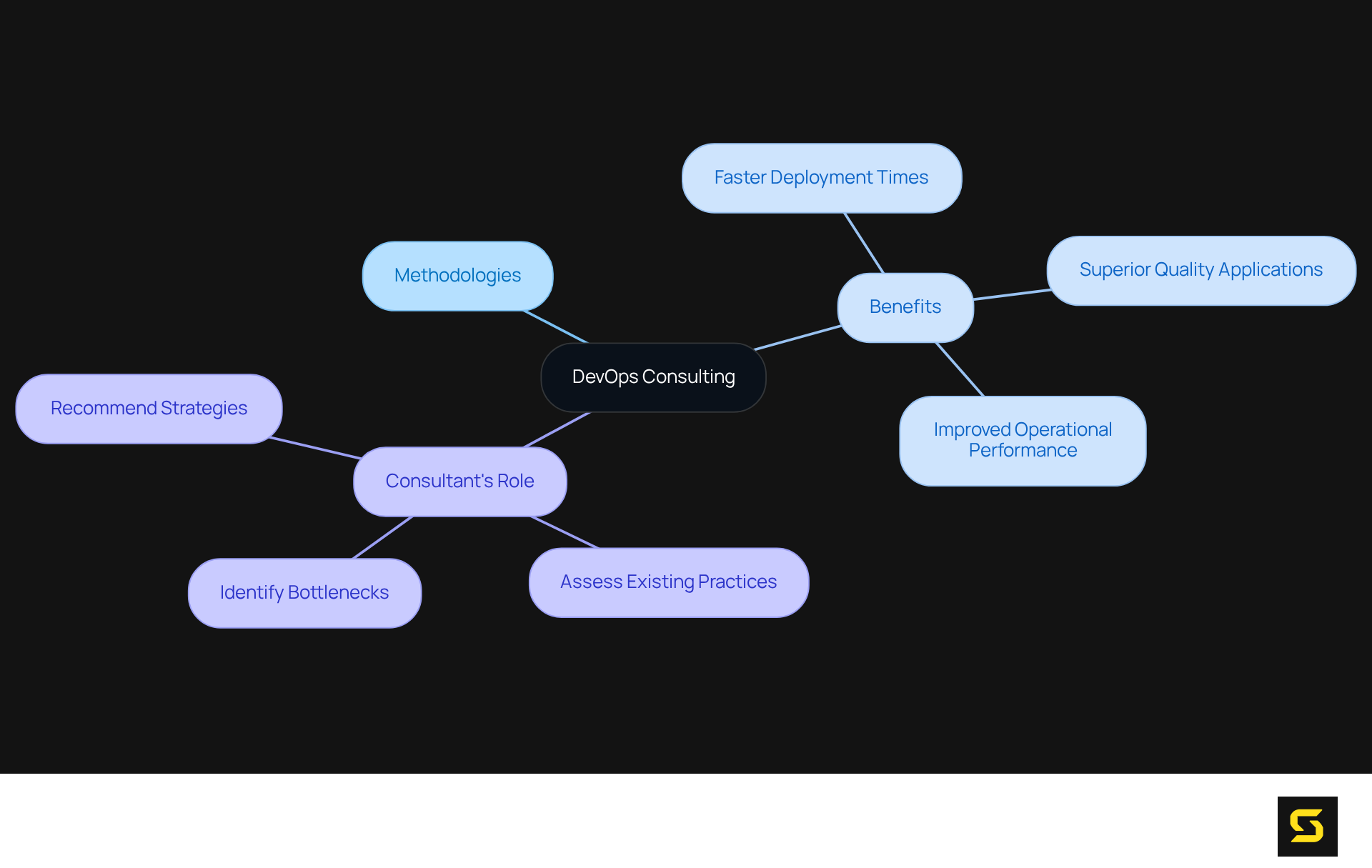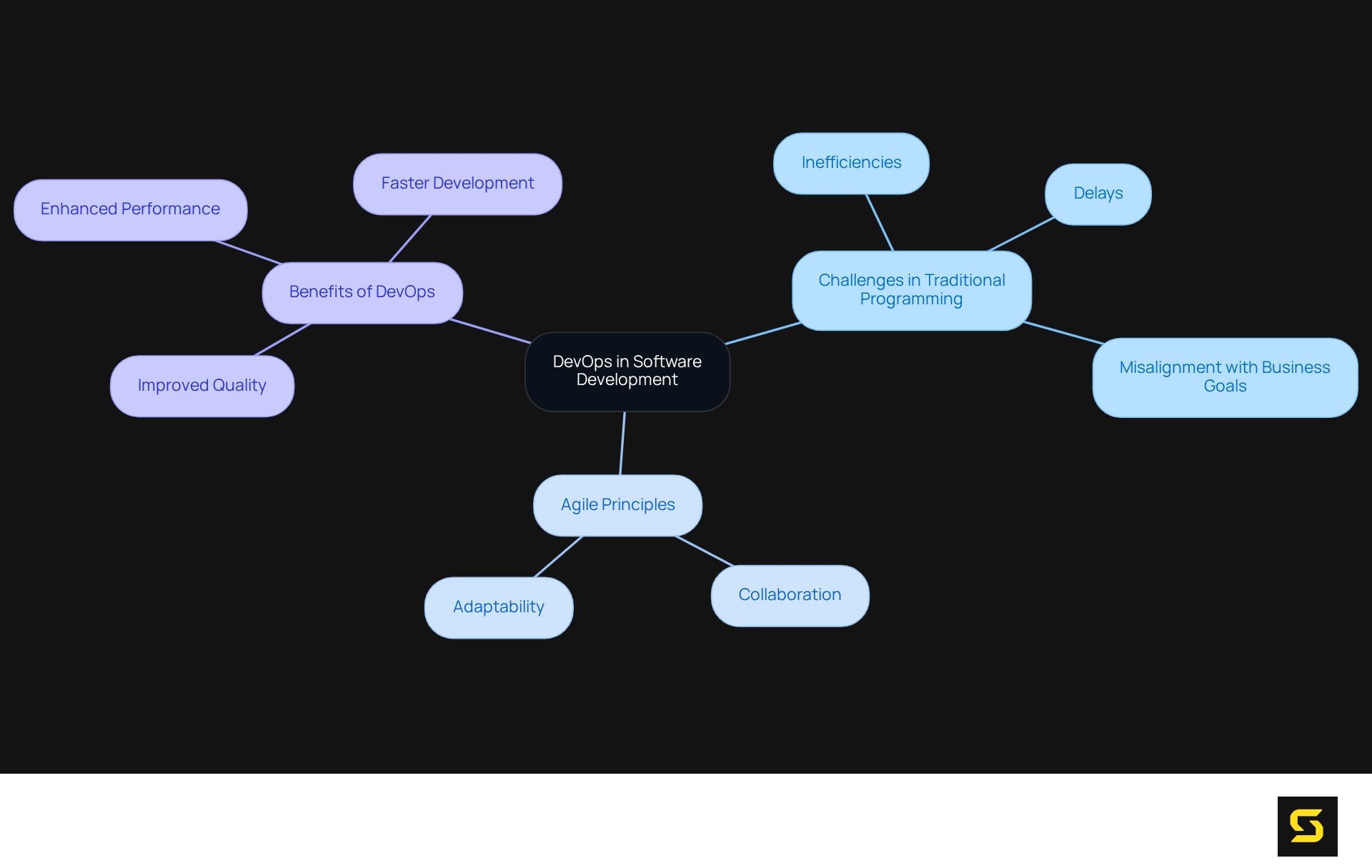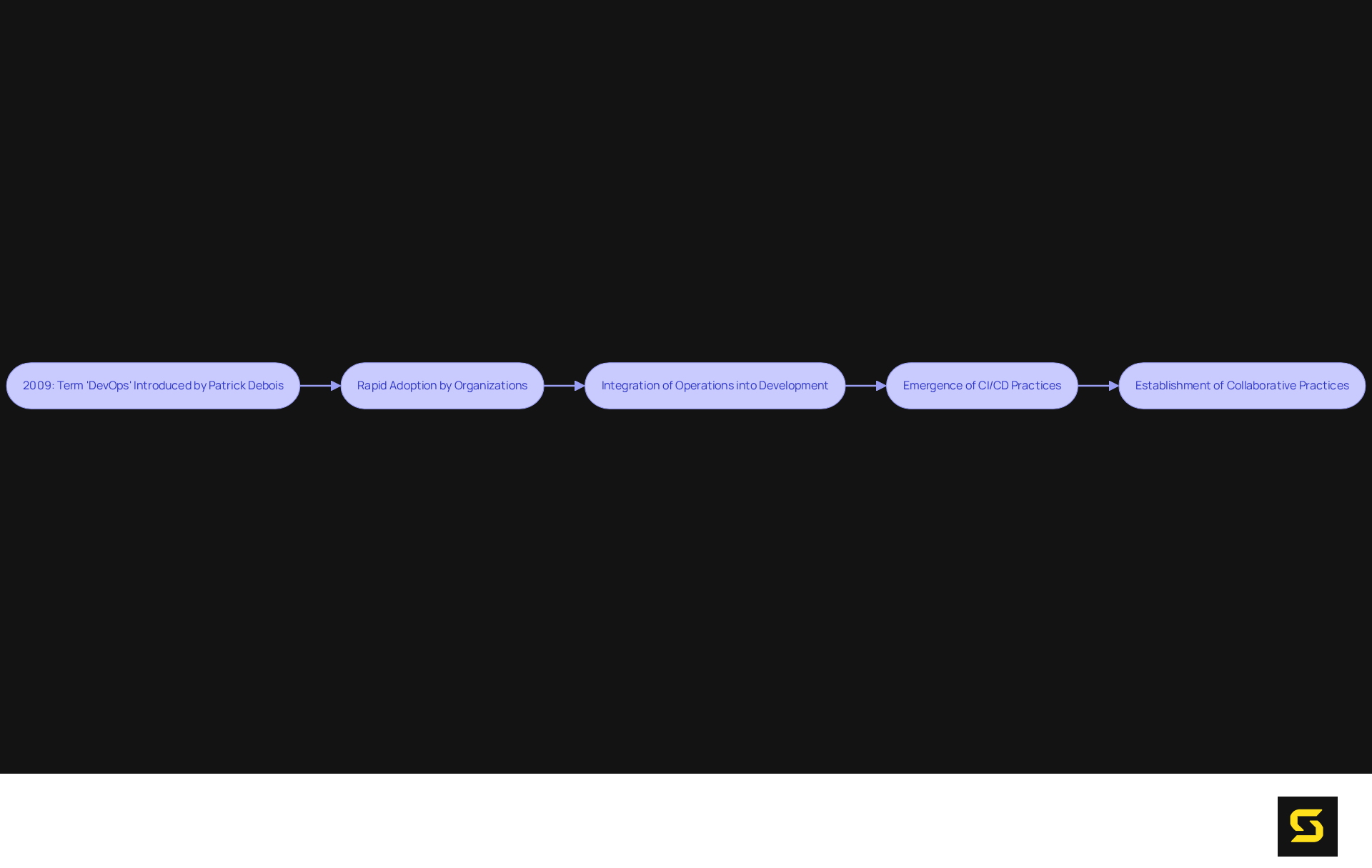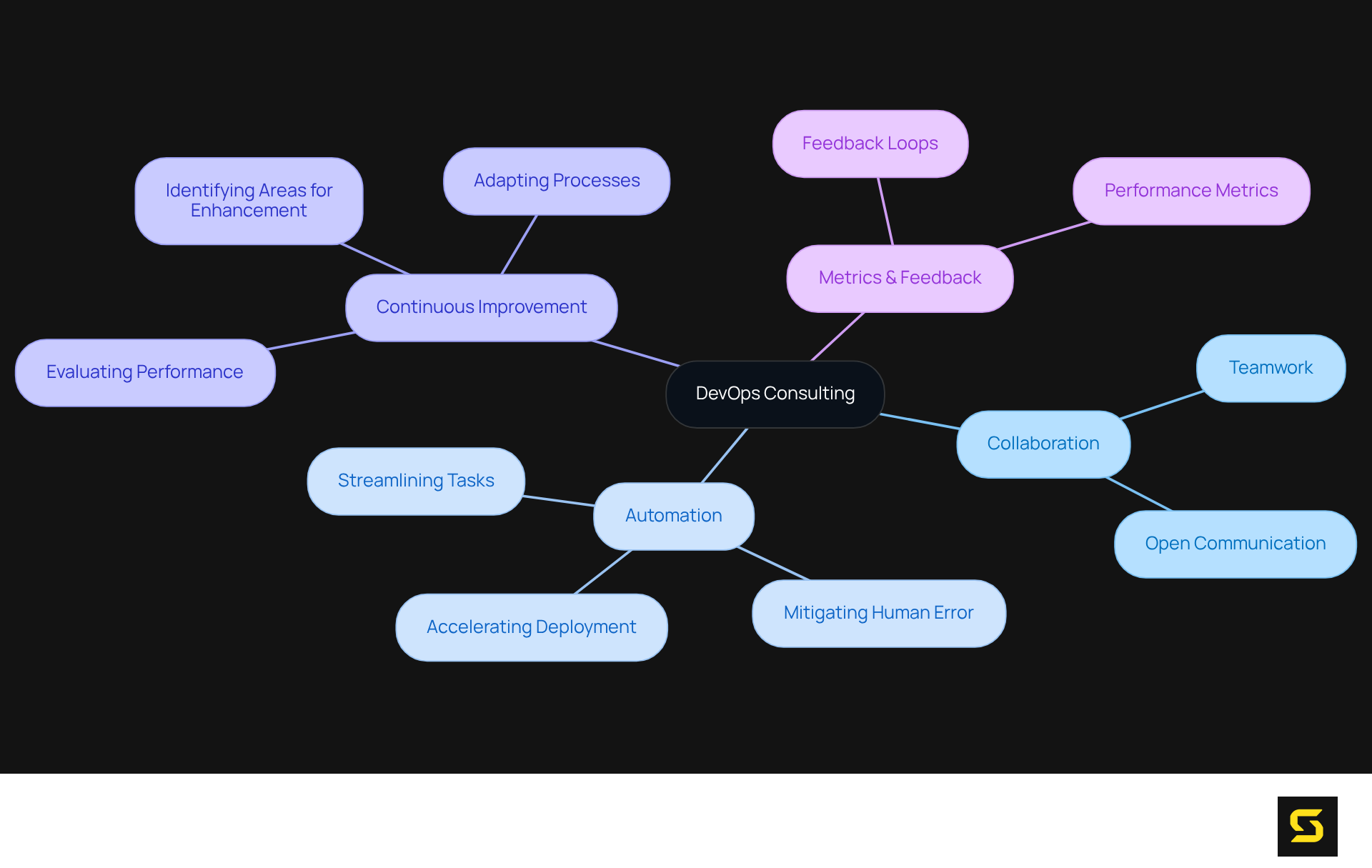Overview
DevOps consulting serves as a crucial advisory service designed to assist organizations in adopting collaborative practices throughout their application lifecycle. By integrating development and IT operations, it significantly enhances delivery efficiency. Effective DevOps consulting not only fosters collaboration but also streamlines processes, empowering teams to achieve faster deployment times and superior application quality. This approach directly addresses the inefficiencies inherent in traditional programming methodologies. Embracing DevOps consulting is not merely a choice; it is a strategic imperative for organizations seeking to thrive in today's competitive landscape.
Introduction
The landscape of software development is experiencing a transformative shift, propelled by the urgent need for enhanced efficiency and collaboration among traditionally siloed teams. DevOps consulting stands out as a crucial solution, providing organizations with a pathway to streamline their application lifecycle through integrated development and IT operations. As companies endeavor to improve delivery speed and application quality, a pivotal question emerges: what are the essential traits that define effective DevOps consulting, and how can they fundamentally reshape the software development process?
Define DevOps Consulting
DevOps consulting in this domain includes the advisory services offered to organizations eager to adopt collaborative practices throughout their application lifecycle. This includes a comprehensive suite of methodologies that integrate application development (Dev) and IT operations (Ops) through devops consulting, aimed at fostering collaboration, streamlining processes, and significantly enhancing delivery efficiency.
By merging these two historically segregated functions, devops consulting empowers organizations to achieve:
- Faster deployment times
- Superior quality applications
- Improved operational performance
The consultant works in close partnership with teams to assess existing practices, identify bottlenecks, and recommend strategies for effective implementation of development and operations methodologies through devops consulting.

Contextualize DevOps in Software Development
The emergence of this practice signifies a pivotal response to the challenges faced in conventional programming methodologies, where engineering and operations teams often functioned in silos. This disconnection resulted in inefficiencies, delays, and a misalignment between business goals and technical execution.
Within the Agile framework, which champions iterative progress and adaptability, this practice aligns seamlessly with its core principles by cultivating a culture of collaboration and continuous improvement. By breaking down these barriers, devops consulting empowers teams to work together more effectively, ensuring that applications are not only developed swiftly but also meet the quality and performance expectations of users.

Trace the Origins of DevOps Consulting
The term 'DevOps' emerged in 2009, introduced by Patrick Debois, with the explicit goal of bridging the gap between software creation and operations teams. This movement rapidly gained traction as organizations recognized the imperative for faster and more reliable delivery in an increasingly competitive landscape. Visionaries within Agile methodologies began to appreciate the profound benefits of integrating operations into their development processes, which led to the establishment of collaborative practices. Over the years, DevOps has evolved to encompass a myriad of tools and frameworks that facilitate automation, continuous integration, and continuous delivery (CI/CD), solidifying its role as a fundamental pillar of contemporary software development methodologies.

Identify Key Characteristics of DevOps Consulting
A strong emphasis on collaboration, automation, and continuous improvement characterizes DevOps consulting. Effective consultants cultivate a culture of teamwork, fostering open communication between development and operations teams. They champion the use of automation tools, which streamline repetitive tasks, mitigate the risk of human error, and accelerate deployment times. Additionally, a focus on metrics and feedback loops is vital, as it allows organizations to evaluate performance, identify areas for enhancement, and adapt their processes accordingly. By embodying these characteristics, DevOps consulting empowers organizations to achieve their software delivery goals with greater efficiency and effectiveness.

Conclusion
DevOps consulting represents a transformative approach that integrates development and operations, fostering collaboration and enhancing the efficiency of software delivery. By breaking down silos and promoting a culture of teamwork, organizations are better equipped to navigate the complexities of modern software development, resulting in faster deployment times and higher-quality applications.
Key elements of DevOps consulting have been highlighted, including:
- Its historical context
- The significance of Agile principles
- The essential traits that define effective consulting practices, which include:
- An emphasis on automation
- Continuous improvement
- The importance of metrics and feedback loops
Each of these components plays a crucial role in enabling organizations to streamline their processes and achieve their software delivery goals.
The evolution of DevOps consulting underscores its importance in today’s fast-paced technological landscape. As organizations strive for agility and responsiveness, embracing DevOps practices is not merely advantageous; it is essential for sustainable success. By investing in DevOps consulting services, companies can enhance their operational performance and remain competitive in an ever-evolving market. Now is the time to act—embrace DevOps consulting to secure your organization's future success.
Frequently Asked Questions
What is DevOps consulting?
DevOps consulting involves advisory services provided to organizations looking to adopt collaborative practices throughout their application lifecycle, merging application development (Dev) and IT operations (Ops).
What are the main goals of DevOps consulting?
The main goals of DevOps consulting are to foster collaboration, streamline processes, and enhance delivery efficiency, leading to faster deployment times, superior quality applications, and improved operational performance.
How do DevOps consultants assist organizations?
DevOps consultants work closely with teams to assess existing practices, identify bottlenecks, and recommend strategies for the effective implementation of development and operations methodologies.





